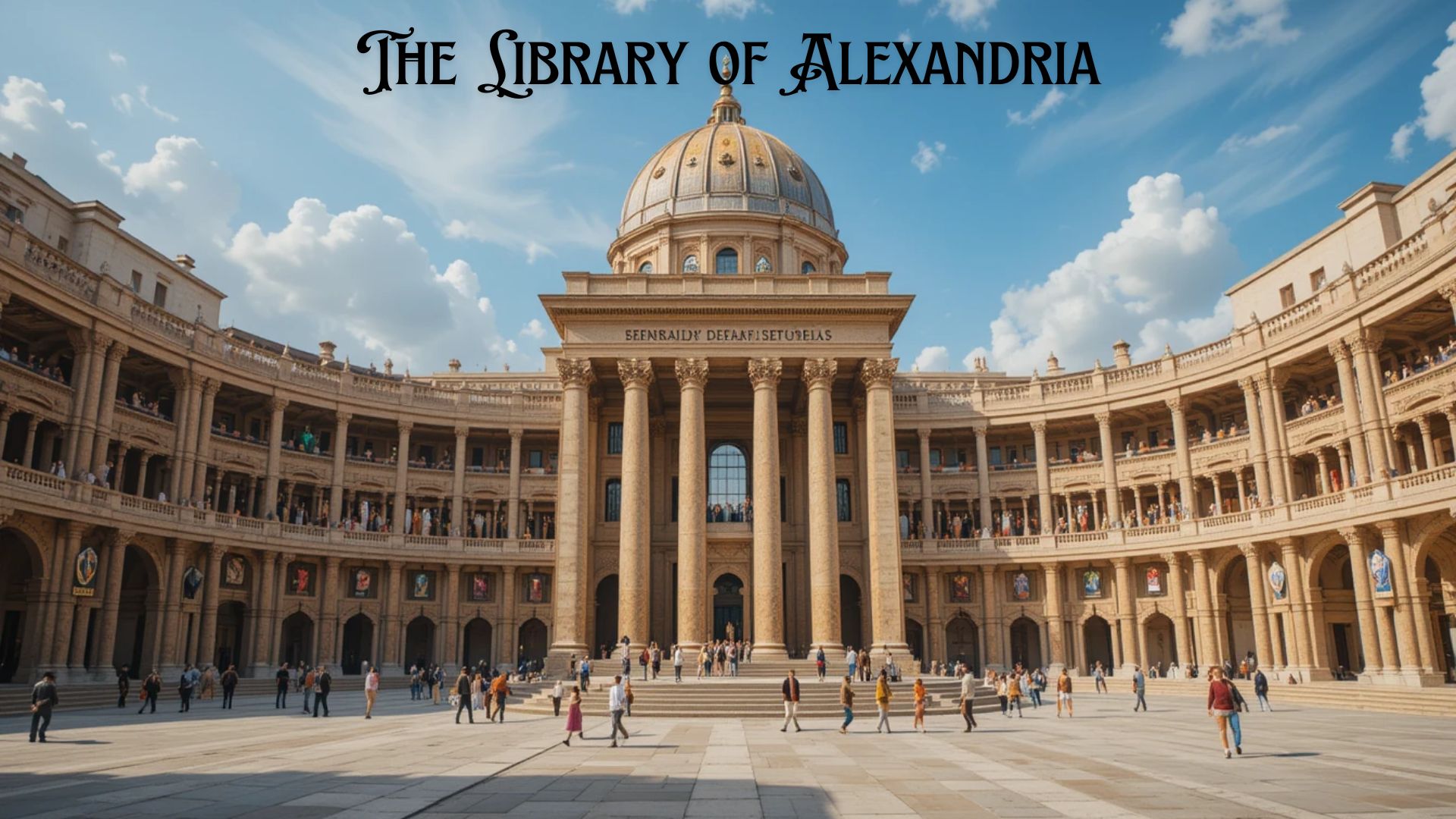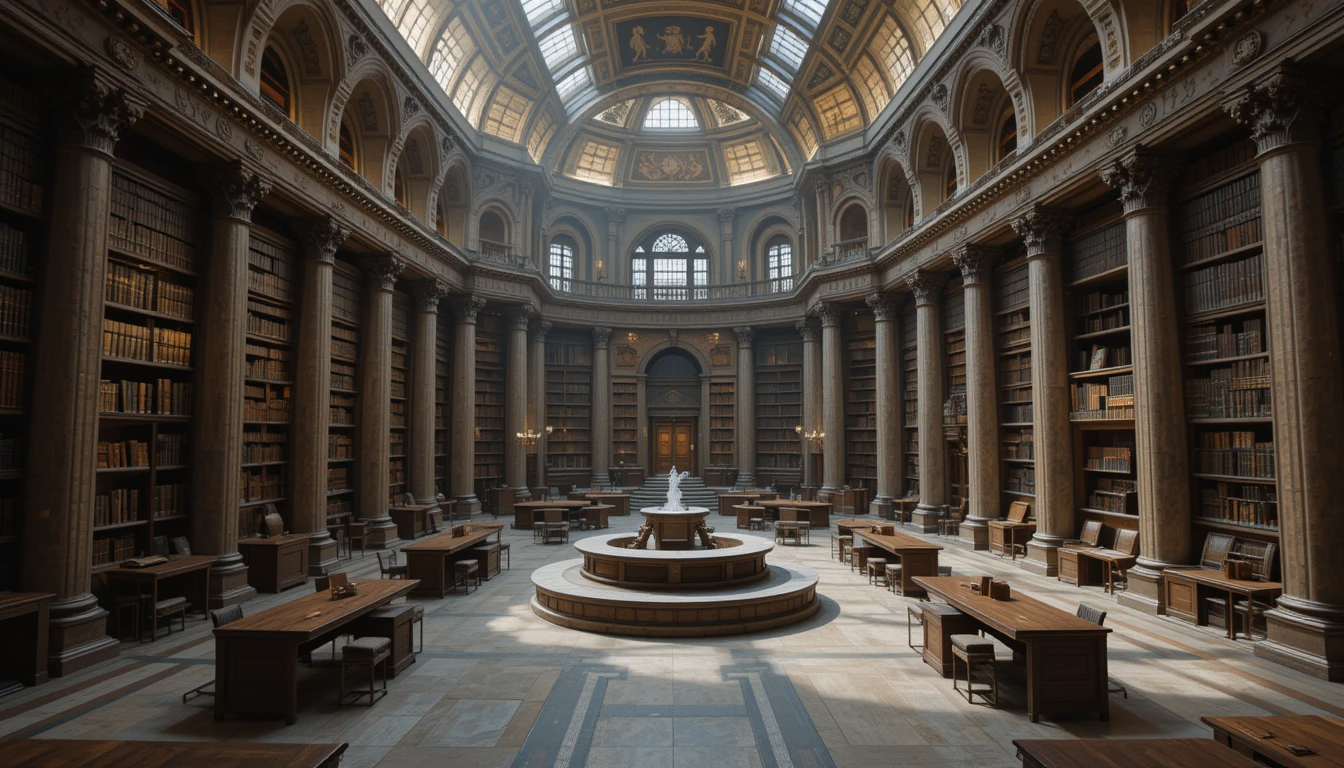
The Library of Alexandria: The Lost Treasure of Ancient Knowledge
Few symbols of human achievement carry the weight of mystery and tragedy like the Library of Alexandria. Founded in the Egyptian city of Alexandria around the 3rd century BCE, this legendary institution was once considered the epicenter of ancient knowledge and learning. It aimed to collect every book, scroll, and piece of scholarly information ever written. What made this library so significant, and why does its destruction still haunt historians and dreamers today?
The Origins and Purpose of the Library
The Library of Alexandria was part of a larger research institution known as the Mouseion, established under the rule of Ptolemy I Soter and later expanded by his son Ptolemy II. Inspired by the legacy of Alexander the Great, this library was not just a collection of scrolls but a symbol of scholarly ambition. Historians believe that at its height, the Library housed between 40,000 to 400,000 papyrus scrolls, possibly including works by Homer, Plato, Socrates, and records from Babylon, India, and Persia.
Location and Construction
The Library of Alexandria was within the Royal Quarter of ancient Alexandria, near the harbor. While no physical remains have been definitively confirmed, archaeological digs in modern-day Alexandria hint at underground structures that may be part of the ancient complex. The Smithsonian Magazine has detailed investigations into the likely location.
The Burning of the Library: A Tragic Mystery
The infamous Library of Alexandria burning is one of history’s greatest cultural tragedies. Yet, the truth is far more complex than a single event. The Library of Alexandria burning history spans multiple episodes:
- 48 BCE – Julius Caesar’s siege of Alexandria reportedly caused the first major fire.
- 3rd Century CE – Emperor Aurelian’s campaign led to more destruction.
- 4th Century CE – Religious strife under Emperor Theodosius may have targeted remaining scrolls.
- 7th Century CE – The Muslim conquest under Caliph Omar allegedly led to its final destruction, though modern scholars dispute this claim.
So, who burned the Library of Alexandria the second time? Many blame Roman Emperor Aurelian during his war with Queen Zenobia, which likely caused additional irreversible damage.

The Myth and Apotheosis
Over time, the Library of Alexandria myth grew, symbolizing not just the loss of knowledge, but the loss of what humanity might have become. Some even refer to its idealized status as the Library of Alexandria apotheosis — a vision of intellectual perfection. It’s become a metaphor in literature, pop culture, and digital media, including fan-driven interpretations in Library of Alexandria Minecraft worlds and trading card games like Library of Alexandria MTG (Magic: The Gathering), where it appears as a rare card representing arcane power and lost wisdom.
Also Read: Forgotten Historical Events the World Overlooked (But Shouldn’t Have)
Secrets and Lost Knowledge
What were the Library of Alexandria secrets? No one truly knows. Historians theorize that texts from early science, medicine, astronomy, and lost cultures may have existed there. Some even speculate it contained Atlantean legends or early technologies that could have changed the world had they survived.
What Remains of the Library of Alexandria?
As for the Library of Alexandria remains, very little physical evidence survives today. However, the spirit of the library lives on through the Bibliotheca Alexandrina, a modern tribute located in Alexandria, Egypt. Inaugurated in 2002, this institution seeks to revive the original mission of global knowledge sharing (UNESCO’s partnership was crucial in its founding).
The Library of Alexandria Today
The Library of Alexandria today continues to fascinate scholars, gamers, historians, and the public. From academic essays to digital recreations in video games and simulations, it serves as a reminder of the power of information—and how fragile it can be. Whether it’s a lecture series, a gaming card, or a Minecraft build, the Library remains embedded in our collective memory.

FAQ
Who burned the Library of Alexandria the second time?
It’s widely believed that the second major destruction happened during Emperor Aurelian’s siege of Alexandria in the 3rd century CE.
What if the Library of Alexandria never burned?
Historians speculate that modern science and technology might have advanced centuries earlier if the knowledge preserved there had survived.
Was the Library of Alexandria real?
Yes, the Library of Alexandria was a real institution established in ancient Egypt, although much about it has entered the realm of legend.
Why was the Library of Alexandria important?
It was the ancient world’s most ambitious attempt to compile and preserve all human knowledge, making it a cornerstone of early intellectual history.
Was the Library of Alexandria public?
The original library was likely not public in the modern sense but open to scholars and philosophers from around the world.
What is the mystery of the Library of Alexandria?
The biggest mystery is what knowledge was lost during its various destructions and whether any original scrolls still survive in hidden collections.
What is the story behind the Library of Alexandria?
It began as a grand vision to house every book in the known world and ended as one of history’s most tragic cultural losses.
Who finally destroyed the Library of Alexandria?
The final destruction is debated, but possible candidates include Roman Emperor Aurelian, Christian zealots under Theodosius, and later Arab conquerors—though the last is disputed by many scholars.
Is there any evidence of the Library of Alexandria?
No scrolls or architectural remains have been definitively linked to the original library, but ancient texts and archaeological studies continue to provide clues.
Was the Library of Alexandria real?
Yes, despite mythic retellings, the Library of Alexandria was a historically documented institution that shaped early scholarship.
The Library of Alexandria stands as both a symbol of humanity’s thirst for knowledge and a stark warning about the fragility of cultural heritage. Its burning didn’t just destroy scrolls—it shattered centuries of accumulated wisdom. While we may never recover what was lost, the legend of the Library inspires ongoing quests for understanding, preservation, and rediscovery. Whether in modern libraries, digital archives, or imaginative recreations, the legacy of Alexandria endures—reminding us that knowledge is both precious and perishable.
